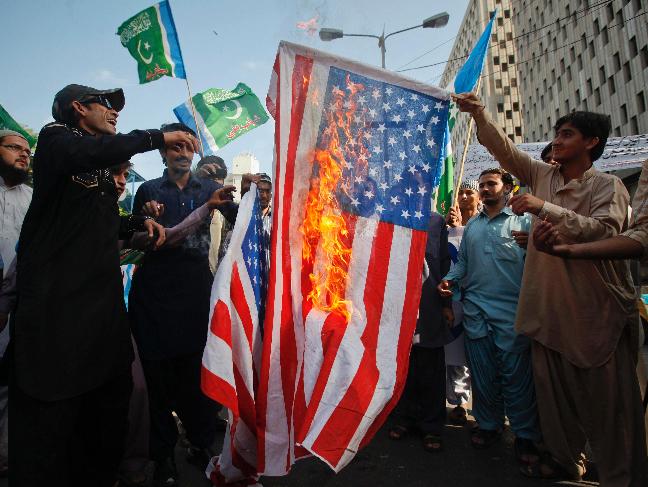Islamabad, Pakistan, August 08: Pakistan’s cabinet has silently given its nod to the new security pact CIS-MOA with the United States in a strategic move that may pave the way for Islamabad to procure military hardware from Washington DC.
The Communication Interoperability and Security Memorandum (CIS-MOA) is a foundational agreement that the US signs with its allies and countries with which it wants to maintain close military and defense ties.
It also provides legal cover to the US Department of Defence for ensuring the sale of military equipment and hardware to other countries.
This was one of the four foundational agreements — CISMOA, the Logistics Supply Agreement (LSA), the Basic Exchange and Co-operation Agreement (BECA), and Communications Compatibility and Security Agreement (COMCASA) — that the US signs with all its military allies.
The US-Pak CIS-MOA first was signed in October 2005 for 15 years. The agreement expired in 2020 but the two sides have now renewed that arrangement that covers joint exercises, operations, training, basing, and equipment.
“Complex” US-Pak ties:
The ties remained mainly “transactional” and experienced frequent fluctuations, often referred to as a “roller coaster” relationship.
Pakistan was a Cold War ally of the United States and played a critical role in training Afghan Mujahideen during the 1980s Soviet-Afghan War.
After the US invasion of Afghanistan in 2002, Pakistan’s status was raised to a Major non-NATO Ally. Moreover, between 1948 and 2016, the United States provided nearly $78.3 billion in aid to Pakistan.
However, despite being a US ally in the war and taking billions of dollars in military aid against its assistance to the US forces in Afghanistan, Pakistan played a crucial role in providing safe haven to Talibani terrorists.
Donald Trump criticized Pakistan for backstabbing, saying “They have given us nothing but lies and deceit”. During the Trump era, the relations started downgrading.
This trend further continued during the Biden administration. The US distanced itself from Pakistan after its Afghanistan withdrawal in 2021, contributing to its “diplomatic isolation”.
However, with Shehbaz Sharif becoming PM, relations started to improve. He came to power in April 2022 by removing then-PM Imran Khan through a Parliamentary No-Confidence, which Khan called a Washington-orchestrated plan.
In September 2022, the US granted Pakistan a $450 million package for F-16 sustainment and equipment. Washington also helped Pakistan in securing a $3 billion IMF bailout package, critical to prevent a Balance of Payment crisis.
The renewal of the recent CIS-MOA has not been officially announced, and both the Pakistani and US governments have chosen to withhold comments on the matter.
This is where the “India factor” comes into the picture.
India Factor:
According to Analysts, this secrecy by the US is to avoid upsetting India.
Military Support to Pakistan has remained a major cause of discord between India and the United States, since the time of the Cod War.
Today, India and US have strengthened their partnership into what US President Joe Biden called the “most defining partnership of the 21st century”.
However, continued military support to Pakistan has remained a major bone of contention even today.
While commenting on US $450 Million military aid to Pakistan last year, India’s external affairs minister S Jaishankar said, ‘The US is not “fooling anyone” by saying that the support for Pakistan Air Force’s F-16s was meant for counterterrorism’. He asked Washington to reflect on its ties with Islamabad and the price it has paid for a relationship that has served neither side well.
There is no official comment so far by the Indian side on the US-PAK New Security deal, though there is anxiousness in the Indian strategic community over continued military support to Pakistan.
It remains to see how the US manages its relationship with Pakistan, especially considering its deepening strategic partnership with India.
Moreover, Pakistan is heavily indebted to China and is an ally of China in many ways. Given the US-China conflict, many experts are wondering if the US military relationship with Pakistan even makes any sense in contemporary great power dynamics.






